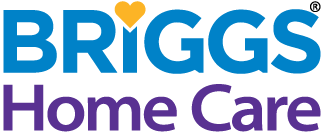In today’s fast-paced world, the roles we juggle are increasingly complex and demanding. None more so than the role of a family caregiver. With the number of individuals requiring home care solutions on the rise, many find themselves in the challenging position of balancing professional careers with caregiving responsibilities. This dual role can place significant emotional and physical demands on an individual. However, with the right strategies, achieving a harmonious balance is possible.
Tip 1: Set Clear Boundaries at Work
Clear communication is key in any setting, particularly when explaining your caregiving duties to your employer. It’s essential to negotiate flexible hours or remote work arrangements that accommodate your caregiving responsibilities. Being upfront about your needs can help in crafting a more sustainable work-life balance.
Tip 2: Prioritize Tasks
Effective time management hinges on the ability to distinguish between what’s urgent and what can wait. Utilize digital tools and apps to organize both your professional and caregiving tasks, ensuring you focus on what truly matters each day.
Tip 3: Seek Employer Support
Many organizations offer resources to support employees with caregiving responsibilities. Familiarize yourself with the options available to you, such as Employee Assistance Programs (EAPs) or family leave under laws like the Family and Medical Leave Act (FMLA). These resources can be invaluable in maintaining job security while managing caregiving demands.
Tip 4: Use Technology to Stay Organized
The digital age offers a plethora of apps designed to assist with scheduling, medication management, and even remote health monitoring. Leveraging these technologies can streamline your caregiving duties, making it easier to manage time effectively.
Tip 5: Build a Support Network
No one should have to manage caregiving alone. Cultivate a network of support comprising family, friends, and professional caregivers. Shared responsibilities can significantly reduce stress and burnout, ensuring a healthier environment for both caregiver and recipient.
Tip 6: Communicate Openly with Family
Regular family meetings keep everyone aligned on caregiving strategies and responsibilities. Open dialogue ensures that expectations are clear and that every family member has the opportunity to contribute, fostering a cooperative approach to caregiving.
Tip 7: Embrace Flexibility
Caregiving can sometimes be unpredictable. Accepting that plans may need to change and adapting accordingly will reduce stress and frustration. Maintaining a flexible approach allows you to manage unexpected caregiving demands without compromising work obligations.
Tip 8: Prioritize Self-care
Ignoring your own health can be detrimental, leading to burnout and decreased effectiveness as a caregiver. Integrate self-care routines into your day to ensure you remain healthy and energized. Remember, taking care of yourself is not selfish—it’s necessary.
Tip 9: Professional Help and Respite Care
Sometimes, the caregiving responsibilities might become too overwhelming. Recognizing when to seek professional help or respite care is crucial. These services provide much-needed breaks and ensure that your loved one continues to receive high-quality care.
Tip 10: Reflect and Adjust Regularly
Evaluate the effectiveness of your balancing strategies regularly. What works today may not work tomorrow, and adapting to changing needs and circumstances is crucial. Continuous adjustment ensures that both work and caregiving duties are managed effectively.
Balancing work and family caregiving responsibilities is undoubtedly challenging. Yet, with careful planning, open communication, and the strategic use of available resources, it is possible to fulfill both roles successfully. Remember, seeking support and acknowledging your limits is not a sign of weakness but a pragmatic approach to a complex situation.
For additional resources and advice on managing personal and professional life, check out our other articles on family caregiving and home care solutions.
- The Essential Guide to Family Caregiving
- Nutrition for the Caregiver: Maintaining Your Health While Caring for Others
- The Emotional Journey of Caregiving: Coping with Guilt and Grief
- Empowering Family Caregivers: Exploring the Latest in Family Caregiving Technology
- Understanding the Legalities: A Family Caregiver’s Guide to Medical and Financial Decisions
- Creating a Sustainable Caregiving Plan: A Checklist for Family Caregivers
- Navigating Long-Distance Caregiving: Strategies for Managing Care from Afar






